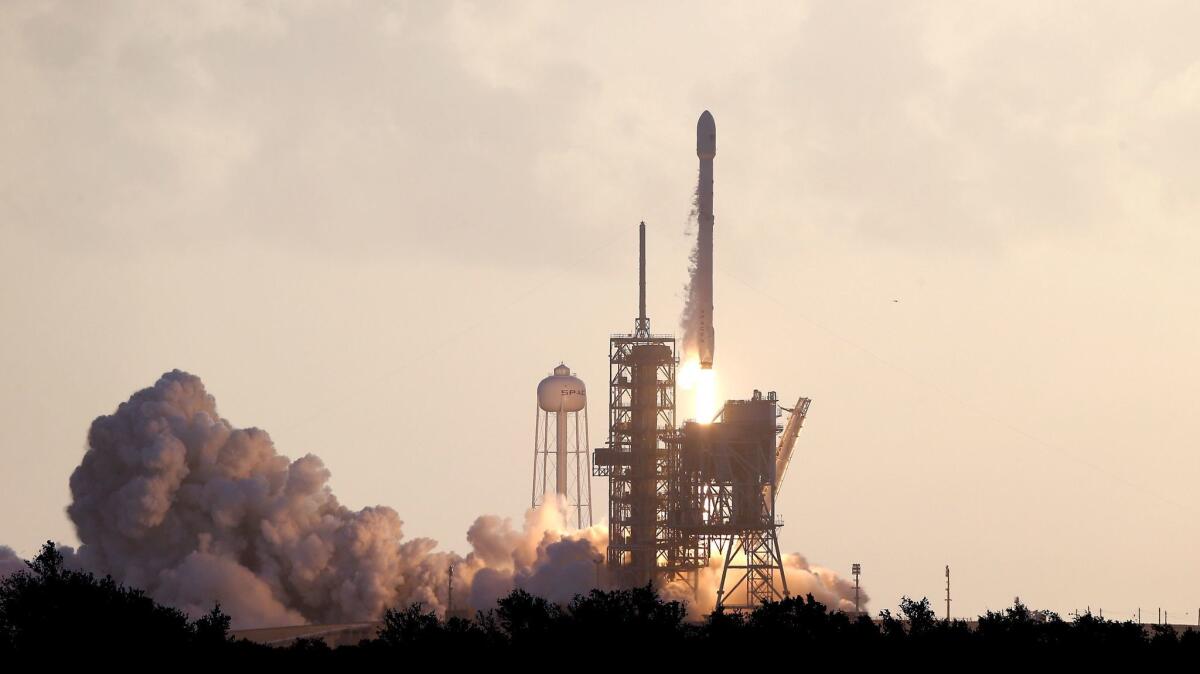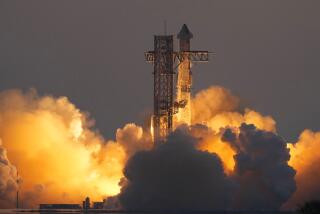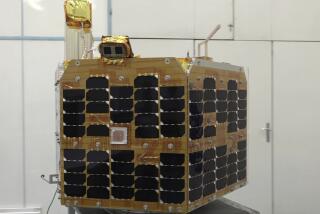SpaceX launches U.S. spy satellite into orbit, then lands rocket booster safely

SpaceX launched a U.S. spy satellite into orbit Monday, then landed its first-stage rocket booster near the launchpad.
It was another successful launch for the Elon Musk-led company as it tries to show it can be a reliable launch provider for government and commercial payloads.
The launch of the spy satellite, known as NROL-76 for the Pentagon’s National Reconnaissance Office, came shortly after 7 a.m. EDT at Kennedy Space Center in Florida. The launch originally was set for Sunday, but it was scrubbed that day because of what SpaceX described as a sensor issue.
“Launch and landing of the NRO spy satellite was good,” Musk said Monday on Twitter, adding that it was a “tough call” to launch because of high-altitude wind shear.
The first stage of SpaceX’s Falcon 9 rocket then separated from the second stage and made a vertical landing back near the launchpad at Cape Canaveral Air Force Station, the company said on its Twitter feed.
Few details have been made public about the classified payload of Monday’s launch, including the satellite’s purpose and what orbit it would take.
SpaceX, which is based in Hawthorne and whose full name is Space Exploration Technologies Corp., was certified two years ago to launch national security satellites. It is trying to compete more strongly with United Launch Alliance, a joint venture of Boeing Co. and Lockheed Martin Corp. that dominates the business.
SpaceX is hoping to average about two launches a month this year with its reusable boosters.
In late March, the company for the first time launched and landed a first-stage rocket booster that had previously flown.
Read more: SpaceX launches a recycled rocket for the first time »
Monday’s flight was SpaceX’s fourth successful launch since the Falcon 9 returned to service in January after a four-month lull that followed the explosion of a SpaceX rocket in September. That explosion occurred during routine ground tests, destroying a commercial communications satellite.
Twitter: @PeltzLATimes
More to Read
Inside the business of entertainment
The Wide Shot brings you news, analysis and insights on everything from streaming wars to production — and what it all means for the future.
You may occasionally receive promotional content from the Los Angeles Times.












